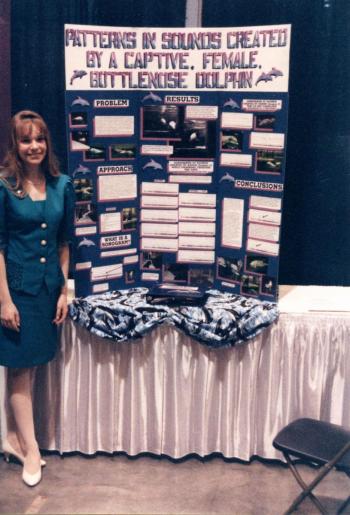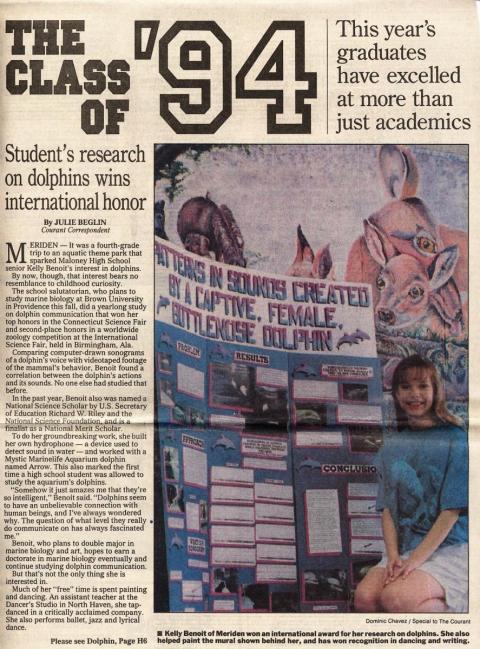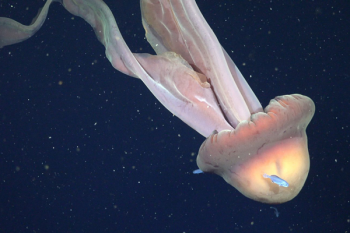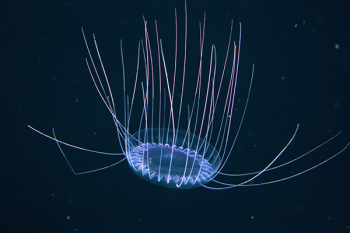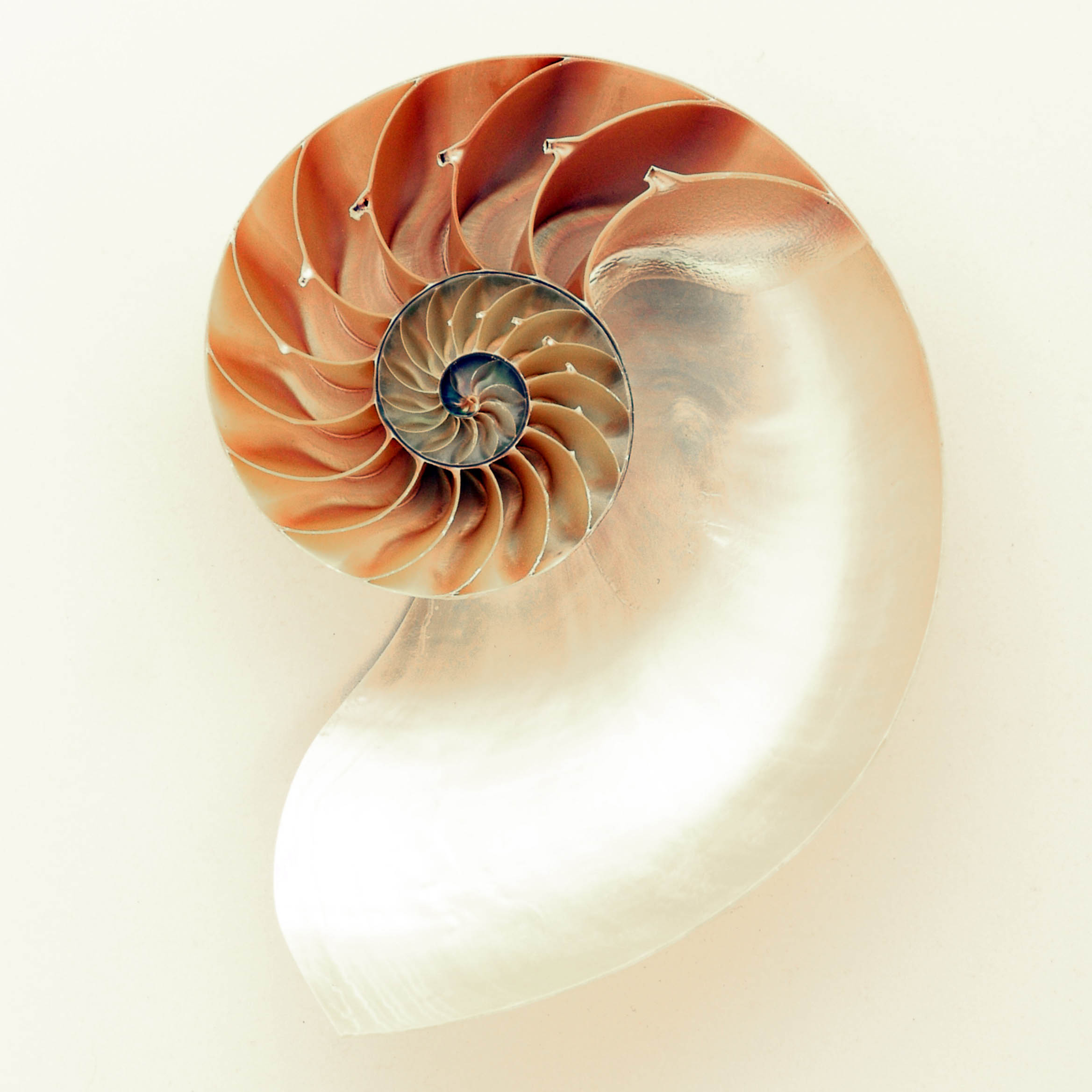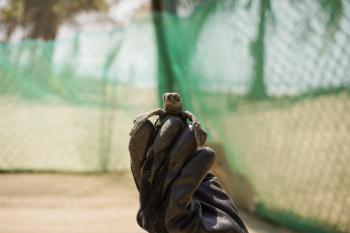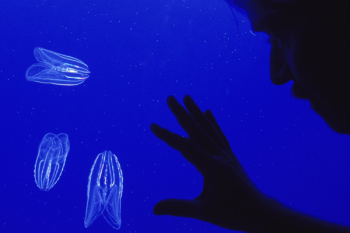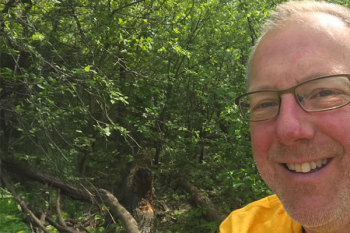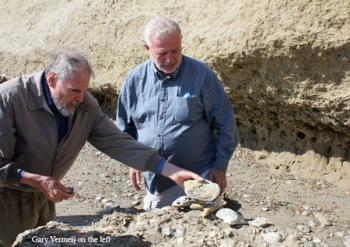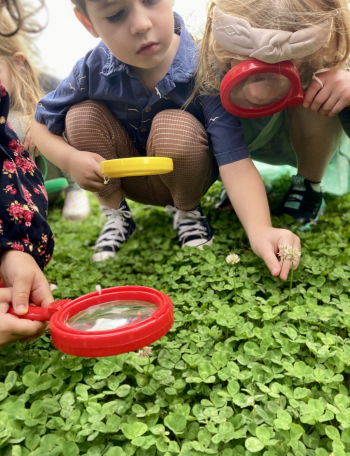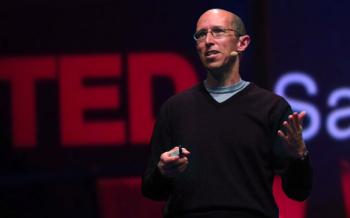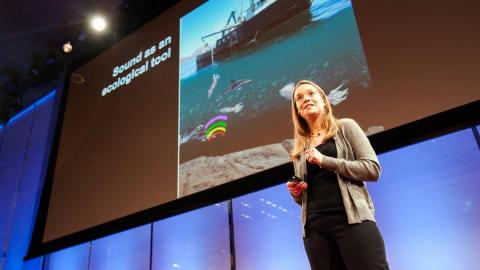
Senior Scientist, Monterey Bay Aquarium Research Institute
Following Her Passion -- A Really Sound Decision
A little girl from Connecticut takes a trip to Sea World. She is captivated by the killer whales and dolphins. Especially the sounds they make and its role in marine life survival. From that point on, Kelly knew she would make a career out of the sounds in the ocean. As a fourth grader, Kelly wasn’t exactly sure how she would do this-- but, boy oh boy, she figured it out.
Kelly comes from a hard-working family. She is the first to graduate from college. With lots of support-- from teachers and her dad (a mechanical engineer), who loved helping Kelly build tools that would help answer her questions, Kelly found her way to an amazing career. “When I was in middle school, my teacher casually looked at me and said ‘Kelly, when you go to college, you’ll find answers to these questions’. College?! Really? From that point on, the vision of going to college was my reality and it motivated me.”
In 2010, Kelly was awarded a MacArthur Fellowship, commonly referred as “genius award” for her “exceptional creativity and promise for important future advances based on a track record of significant accomplishment”.
Seriously. A genius award. If you sat down with Kelly, you’d meet a very down-to-earth person who enthusiastically shares her work and makes it all sound (ahem) intuitively logical.
“The natural world is poetic and filled with music”, Kelly said with a broad smile. “Because the ocean is so dark, vision doesn’t do much good. But, sound… well, you can maneuver around a lot in darkness by listening.”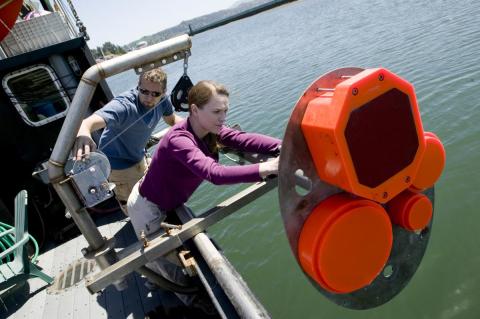
Kelly’s Work
Like the dolphins with their echolocation that first inspired her, Kelly uses sound to see and study a wide range of animals including zooplankton, fish, squid, and marine mammals. Using sonar, she looks at the patches and patterns of animal distribution in pelagic marine ecosystems in order to understand behaviors like schooling, cooperation, and other ‘group’ processes. Just look at anchovies; why do they school? Why does their behavior change during upwelling? How does that influence their predators, like whales that need huge schools of prey. What drives schooling and what role does sound play for the anchovies?
In order to address complex, four-dimensional problems in the ocean, she often develops new acoustic techniques and integrates these tools with other approaches including optical sampling, animal tagging, and behavioral modeling as part of interdisciplinary research programs.
“Through sound, I discover the rules that govern animal choices,” Kelly says. Today, she is assisting the Navy by sharing her data on the effects of its sonar testing on whales. “For example, why do we see so many beached beaked whales in a specific region? Why do the whales keep coming back to that area? Is it food? Does leaving that area have an impact on the population?” posed Kelly.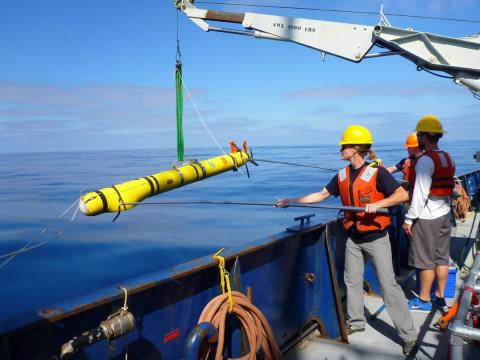
Teaching Science and Encouraging Girls
“I think the challenge with teaching science is how to get away from memorizing facts and placing more emphasis on getting your hands dirty gathering data. We need to teach kids that science isn’t a bunch of white dudes in lab coats.”, chuckled Kelly.
“For girls interested in science, it’s especially important to find good mentors and role models”, shared Kelly. “It’s important for girls to see and talk with women who have made a career in STEM.”
Kelly is a mom, an oil painter, loves making things, and she just happens to be a science “genius”. And, to think, it all started with a teacher who planted the idea of her going to college.
